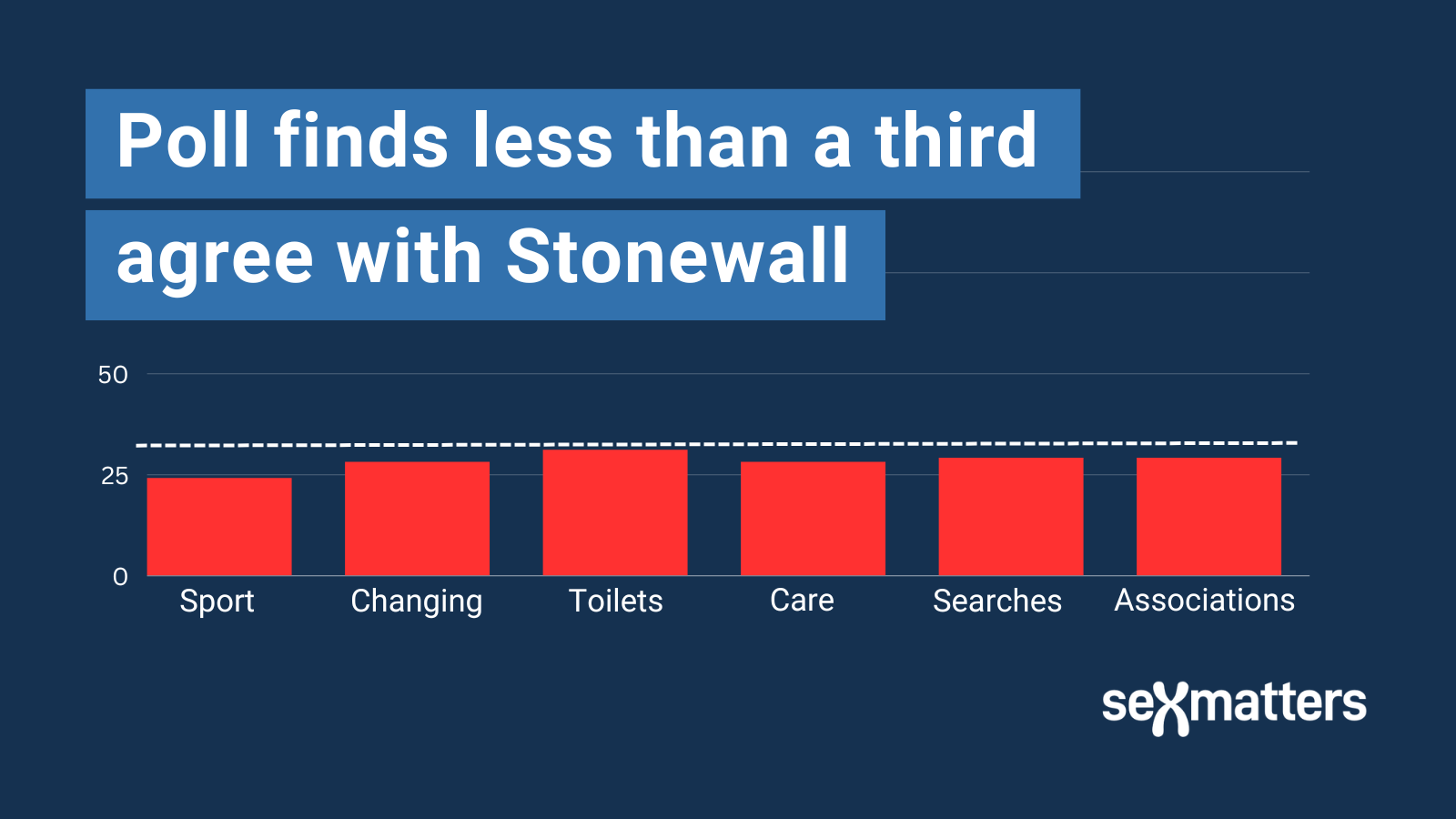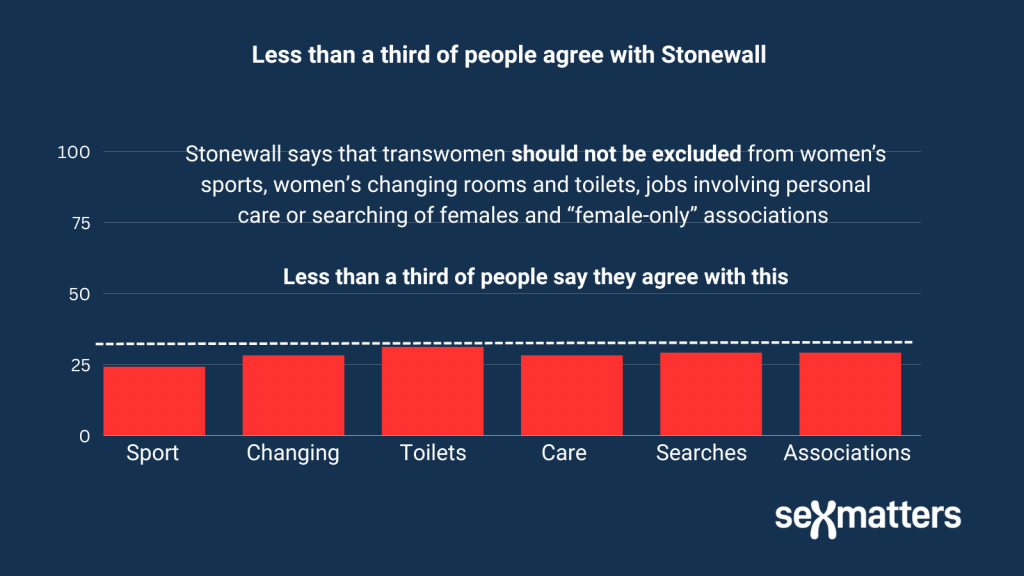Less than a third of Brits say transwomen should be allowed in female-only spaces and sports

Sex Matters has today released the findings from a representative national poll.
It finds that less than one in three Britons believe that transwomen – men who identify as women – should be allowed in women’s sports, changing rooms and toilets, or to provide ‘female-only’ intimate care.
The lack of public support for the so-called ‘inclusion’ of males in female spaces should encourage the government to clarify the Equality Act, so that it is clear that having a gender-recognition certificate (GRC) is not an access-all-areas pass to spaces and services intended for the opposite sex.
Reassuring service-providers that they won’t be sued if they simply and clearly exclude all male people from women’s spaces, sports and associations is crucial to give them confidence to provide services and facilities that are fair, safe and inclusive for women and girls.
Do people agree with the Stonewall position?
The Equality Act names several different areas where it is lawful to treat men and women differently: sports, services, associations, single-sex charities, schools, colleges and jobs.
Stonewall argues that men who identify as women should be treated as women by law in all these cases and allowed to play women’s sport, access women’s services and facilities, do jobs that require a woman and join associations that are run by and for women and girls, including women’s refuges, Girlguiding and lesbian associations.
Less than a third of people across the whole population support this.

The poll, undertaken by an independent polling company, asked 1,802 adults over 18 whether organisations should be allowed to exclude men who identify as women from female-only provision in a range of situations.
It clarified that: “a transwoman is a person who is biologically male, but who identifies as a woman. They may or may not decide to have cosmetic surgery such as breast or genital surgery”.
The findings explode the myth that there is widespread support for using the law to force organisations to include males within the female category.
What about young people?
Less than half of the people in every age group support the Stonewall position.
Those aged 18 to 24 were most likely to support the Stonewall position, with particular differences on changing rooms, toilets and associations.

What about men and women?
As in previous surveys, men were generally less likely to support the Stonewall position than women. But less than one third of the women support the Stonewall position overall. Women were least likely to support the proposition that transwomen should be treated as women when it comes to providing intimate personal care to an elderly female patient.

What about politics?
There was no majority support for the Stonewall position among the voters of any of the three main parties. There is least support among Conservatives (fewer than a quarter of people) followed by the Liberal Democrats, with the highest level of support (but still not a majority for any of the measures) among Labour voters.

Download all the data:
